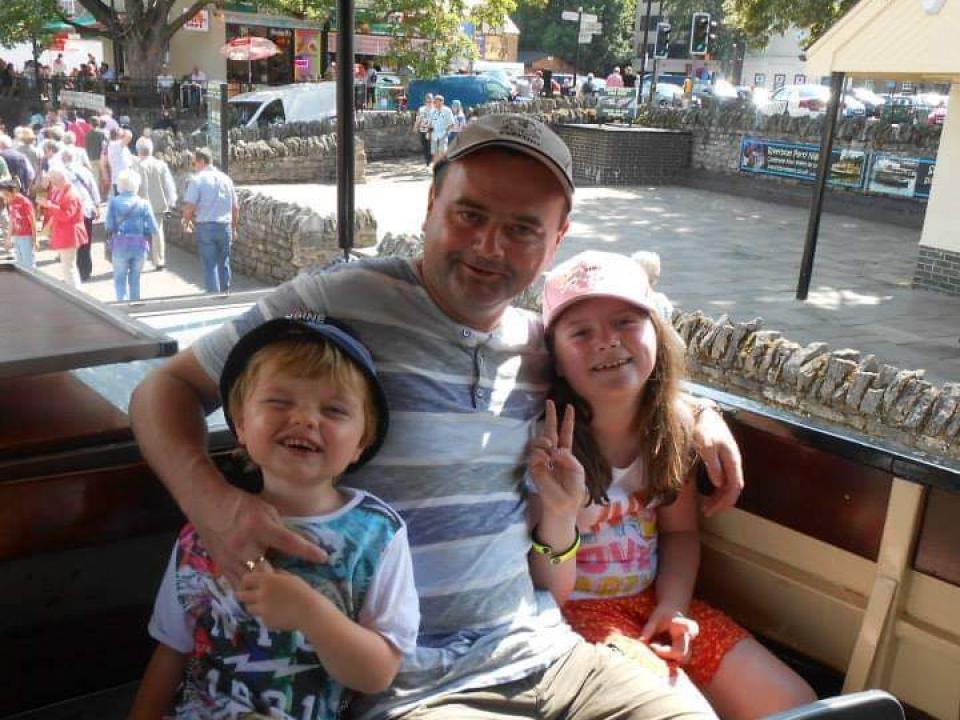When Eileen McArdle started to notice that her five-year-old son Liam was struggling with his energy and balance one May day in 2015, she could never have expected it would prove the precursor to a rare and sadly incurable cancer diagnosis.
Liam was always so full of life and energy, but the symptoms she had noticed seemed to overlap with what might typically be experienced by a child living with autism, as was the case with Liam, so they presented no immediate cause for alarm.
Initially it was thought they may have been caused by an ear infection or possibly a perforated eardrum, but antibiotics didn’t make it any better.
Eileen was prompted to take her son to the Lourdes Hospital in Drogheda after he experienced a concerning bout of weakness, where a scan managed to find the cause of everything; a tumour located on Liam’s brain.
“It was as unexpected for the medical staff as it was for us, and we were just floored by this,” remembers Eileen. “He was rushed to Temple Street and within a matter of hours he got really, really sick. They had to perform an emergency shunt, and it was then we were told it was DIPG.”
DIPG, or DMG as it is also known, is a form of cancer caused by a mutation in one specific gene. It is most commonly found in children, and there is currently no known cure.
All we could hear is it was terminal, and it just came on so quickly, it was such a rollercoaster.
Liam spent some time in intensive care after his procedure, and while the family eventually got to take him home for a period Eileen recalls it was “stressful” caring for a child in Liam’s condition at home.
Intensive courses of treatment such as radiation therapy are the only life-prolonging option for children with DIPG, however Eileen felt this would not be right for Liam due to his weakened state. He eventually passed away on 24 June 2015, just seven weeks after first displaying symptoms.

“I just wanted to know if there was even any little bead of hope out there,” Eileen says.
“I know families have done the radiation and gotten a couple of months or up to a year extra for their child, but at the end of the day the news you get on that day one is no different – you’re only able to push back the inevitable, and it’s heartbreaking.”
Prof Adrian Bracken is hoping to make a difference for families like the McArdles.
Back in 2012 when researchers pinpointed the cancer causing gene, or ‘oncogene’ that drives and causes DIPG, it was by absolute chance he “just happened” to be one of the very few researchers globally who were focusing their work on that exact gene of the 25,000 or so that make up human DNA.
According to Prof Bracken, DIPG’s relatively low population incidence of around one in a million means it has not benefited from the same level of research and resultant treatment advances associated with more common cancers.
He and his team in Trinity College have already made significant progress in identifying ways to target the mutation responsible for DIPG, and recently had their groundbreaking work published in the prestigious Nature Genetics journal.
With the help of funding from the Irish Cancer Society over the next two years, Prof Bracken wants to take this research to the next level in their quest to find an effective treatment.
“I’m a parent of two young children, but meeting these parents, it was so tough to hear their devastating story of being told that their child would not survive. The radiotherapy that patients are getting is providing some benefit, but it’s by no means stopping the cancer.”
Having found what he believes to be a “weakness” in the oncogene that causes DIPG through his work to date, Prof Bracken and his team are hoping to test already-available drugs as possible therapies for the condition, while also attempting to uncover further weaknesses that can be targeted to bring about better outcomes.
Hope
“To give some hope into the hearts of these parents would be incredible, because I’ve heard how horrendous this is for the families going through it. Having researchers involved in this disease is important for the parents I’ve spoken to, and to get it to clinical trial level in the next few years and have clinicians involved looking to extend the lifespan and eventually cure these children, it’s so important to give that hope,” he says.
Eileen McArdle agrees.
“It was fantastic to hear of this project. It’s just wonderful and it’s hard to describe: I know it has a long way to go, but even just to have a little spark of hope for families like our own is amazing,” she says.
“It’s good to think that we’re doing our best to help move this forward in whatever small way we can.”
Contact the Irish Cancer Society Support Line
If you have worries or concerns about cancer, you can speak confidentially to an Irish Cancer Society Cancer Nurse through the Freephone Support Line on 1800 200 700.
Monday to Friday, 9.00am - 5.00pm
For more information
Phone
1800200700

